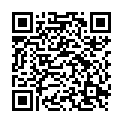|
|
|
| Module code: FT32 |
|
|
- |
|
12 |
| Semester: 7 |
| Mandatory course: yes |
Language of instruction:
German |
Assessment:
Research paper (thesis) and oral presentation
[updated 30.09.2020]
|
FT32 (T242-0005) Automotive Engineering, Bachelor, ASPO 01.10.2011
, semester 7, mandatory course
FT32 (T242-0005) Automotive Engineering, Bachelor, ASPO 01.10.2015
, semester 7, mandatory course
FT32 (T242-0005) Automotive Engineering, Bachelor, ASPO 01.04.2016
, semester 7, mandatory course
FT32 (T242-0005) Automotive Engineering, Bachelor, ASPO 01.10.2019
, semester 7, mandatory course
|
|
The total student study time for this course is 360 hours.
|
Recommended prerequisites (modules):
FT16
FT17 Automotive Engineering I
FT19
FT20 Electric Vehicle Drive Systems
FT21 Vehicle Combustion Engines
FT22 Automotive Engineering II
FT24
FT25
FT26
FT30 Engineering Project in English
[updated 27.09.2013]
|
Recommended as prerequisite for:
|
Module coordinator:
Studienleitung |
Lecturer:
N.N.
[updated 27.09.2013]
|
Learning outcomes:
After successfully completing this module, students will have advanced and trained their engineering working methods in a complex working environment with specialist knowledge and an overview of technical contexts, thereby strengthening and developing their ability to organize themselves and their work.
This will enable them to solve engineering and automotive tasks in an industrial or lab environment by applying scientific methods independently and within a specified time frame.
The presentation during the colloquium will strengthen their ability to independently and comprehensibly present and explain the development and implementation of their solutions and defend them competently.
[updated 30.09.2020]
|
Module content:
Independent work on an automotive engineering problem. The Bachelor thesis is an examination requirement. Its purpose is to show that students are able to solve an automotive engineering problem independently using engineering methods within a given timeframe and to present the results in a structured and concentrated manner.
In addition, procedures and results must be presented and defended orally within the framework of a presentation.
[updated 30.09.2020]
|
Teaching methods/Media:
Regular support and coaching as required and agreed upon
[updated 30.09.2020]
|
Recommended or required reading:
Depends on topic
[updated 30.09.2020]
|


